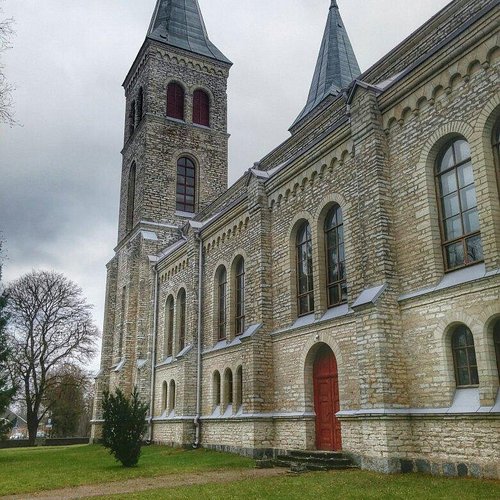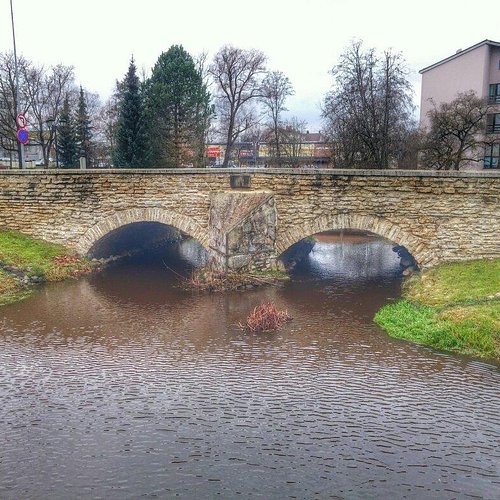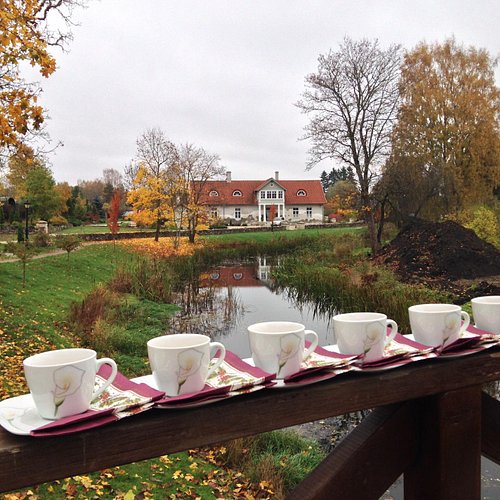Things to do in Rapla, Rapla County: The Best Sights & Landmarks
Rapla is a town in central Estonia, the administrative centre of Rapla County and Rapla Parish. The oldest records date back to 1241 in the Danish Census Book, when it was said that it was a small village with 8 acres of cultivated fields. By the end of the 13th century the village centre was firmly established. At around the same time a Cistercian monastery was built.
Restaurants in Rapla
1. Alu Lord of the Manor Sculpture
2. Rapla Maarja-Magdaleena Church
Overall Ratings
4.5 based on 6 reviews
This Rapla church is the only rural church with two towers in Estonia. The New Roman style building that was consecrated in 1901 was designed by Baltic German architect Rudolf von Engelhardt, and is one of the purest examples of this style in Estonia. Interesting facts: The pulpit and altar were produced in the workshops of Christian Ackermann and Quirinnius Rabe. The Rapla Church Music Festival got its start in the Rapla church. In the church you can listen to the organ produced by Estonia’s renowned organ master craftsmen, the brothers Kriisa. The limestone building can accommodate 3,000 people. In the churchyard you can see round crosses dating back to the 17th century and the monument to the War of Independence designed by Jaan Koort.
3. Rapla Stone Bridge
Overall Ratings
4.5 based on 8 reviews
This bridge, which crosses the Vigala River, was built in place of the former wooden bridge in the late 19th century. A reinforced concrete structure was superimposed on the old bridge in 2009, and pedestrian bridges were added on either side.Did you know…?*The renovated bridge is the only one of its kind in the country*The stone bridge is on the coat of arms of Rapla municipality*A café operates under the bridge on Rapla Day where the dress code is galoshes*River rallies have been held on the river under the bridge, and performances have been given on top of it*Mermaids have even been spotted in the river!*Bring a sandwich, come and park yourself by the river and enjoy some time to yourself! You might not spy any mermaids, but you’re sure to see some ducks!
4. Rapla River Promenade
Overall Ratings
4.5 based on 5 reviews
This promenade, which winds its way along the banks of the Keila River, is a favourite spot among walkers. On one side it is bordered by the Vigala River, and on the other by the Maarja-Magdaleena church park.Did you know…?*You can picnic on the promenade, and even share some of your lunch with the resident ducks*The church park is home to Rapla’s oldest building – the parsonage, dating from the 18th century*The parsonage currently houses the Rapla Art Society*While you are here, be sure to visit Rapla church with its unique twin towers*In the church garden you will see a freedom monument designed by Jaan Koort
5. Freedom Monument
Overall Ratings
4.0 based on 2 reviews
This unique monument, made from dolomite from the Estonian island of Saaremaa, was consecrated on 30 September 1923 in remembrance of the 142 men from Rapla parish who died in World War I and the Estonian War of Independence. It was designed by Jaan Koort. The original monument was destroyed in 1940, but a new version was unveiled on 23 June 1989 produced by sculptor Tonu Maarand.The monument is situated in the garden of the Maarja-Magdaleena church.Did you know…? *What remains of the original monument can be seen behind the church *In front of the parsonage you will see a group of trees known as the ‘Priiuse oaks’, which were planted to mark the end of serfdom
6. Sculpture of Mart Tiru
Overall Ratings
4.0 based on 1 reviews
The portrait sculpture of Brigadier-General Mart Tiru (1947–2005) is located in the heart of Rapla. Former Estonian President Lennart Meri appointed Colonel Tiru the Deputy Commander of the Defence Forces in 2000, and promoted him to Brigadier-General later the same year – making him the first man to achieve such a rank in the country. Tiru played an importance role in Estonia’s accession to NATO.Did you know…?*Tiru’s final place of service was the United States, where he acted as a military representative of Estonia*The sculpture of Tiru was unveiled on Victory Day 2008 by current President Toomas Hendrik Ilves






